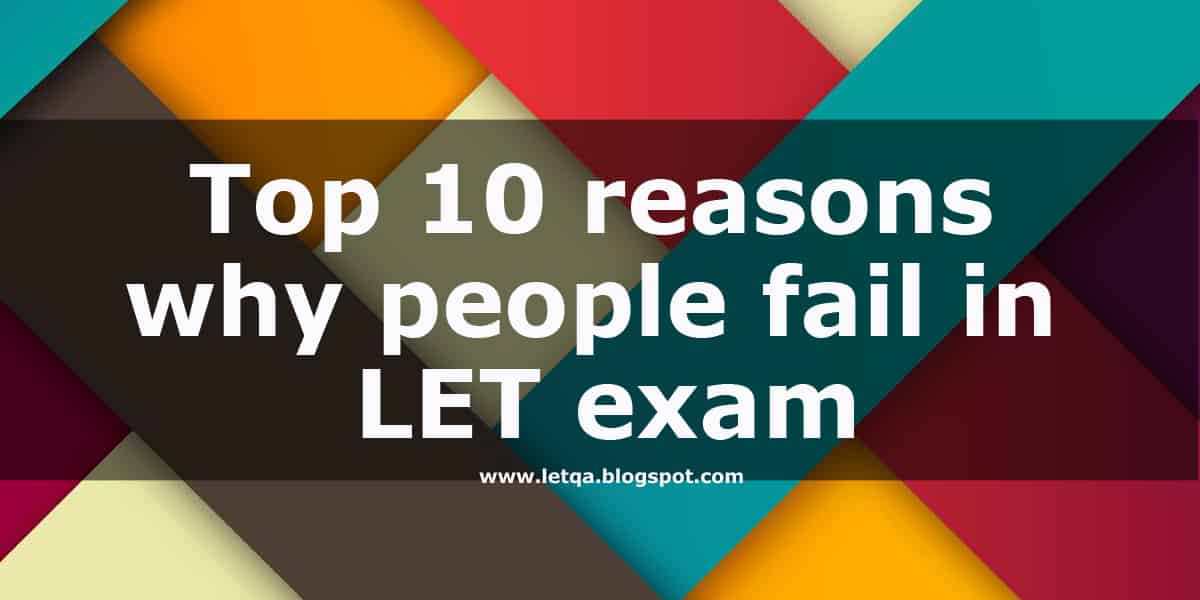1.
The participation rate on a national basis in
the high school-age population is:
A. 90%
B. 77%
C. 68%
Answer: C
2.
The SEDP is the Secondary Education Development
Program which covers the years 1989-1994. Which of the following does not
address to the program?
A. That
the PRODED will produce batter quality student inputs to the secondary
education system.
B. That
new demands will continue to be made by the
heightening competitiveness of a growing technological society.
C. That
unless improved greatly, the system will not be able to scope with the demands
on it.
D. None
of the above.
E. All
of the above.
Answer: D
3.
Which of the goals of the SEDP are lived up?
A. Continue
the pupil development started by PRODED.
B. Strengthen
the students’ preparation for life, work and college.
C. Provide
quality education to all the high school-age population
D. All
of the above.
Answer: D
4.
Which of the following is the best aim of the
Value Education?
A. A
Filipino who is self-actualized.
B. A
social being with a sense of responsibility.
C. A productive person.
D. All
of the above.
Answer: D
5.
Of the seven core values which does not belong
to the group?
A. Healthy
and harmony with nature
B. Truth
C. Love
D. Spirituality
E. Social
Responsibility
F. Economic
Self-sufficiency
G. Nationalism
and patriotism
Answer: B
6.
Which value shall be pursued by the human person
as physical?
A. Love
B. Truth
C. Healthy
and harmony with nature
Answer: C
7.
As an intellectual human being a Filipino must:
A. Search
for truth and seek knowledge.
B. Strive
for economic self-sufficiency.
C. Develop
nationalism and patriotism.
Answer: D
8.
A person as spiritual is concerned and rising
above the material and must :
A. Cultivate
love.
B. Cultivate
a sense of responsibility.
C. Search
for truth.
Answer: B
9.
As normal a Filipino he is endowed with faculty
of freely choosing and loving and develop :
A. Love
B. Search
for truth
C. Develop
health
Answer: A
10.
As social, the human person must cultivate the
sense of ___________ where he is aware of his unique participation in the welfare
of the family and the common good of the larger society.
A. Nationalism
and patriotism
B. Social
responsibility
C. Spirituality
Answer: B
11.
As a Filipino with the drive to maintain and
feel obliged to the economic pursuit, he has developed the value of :
A. Nationalism
and patriotism
B. Love
of fellowmen
C. Economic
self-sufficiency
Answer: C
12.
As political, he must foster the value of ______
, by which he identifies with the people and joins hands in the pursuit of
common goals:
A. Love
B. Truth
C. Nationalism
and patriotism
Answer: C
13.
What is PRODED?
A. Program
for Development of Education.
B. Program
for Decentralized Education Development.
C. Program
to Develop Education.
Answer: B
14.
Which of the following is PRODED addressed to :
A. Reducing
disparities between and within regimes.
B. Raising
the overall quality and efficiency of elementary education.
C. Improving
the management capabilities of the system especially at the regional and
sub-regional levels.
D. All
of the above.
Answer: D
15.
Which of the following does PRODED intend to
achieve?
A. Improve
pupil achievement.
B. Decrease
drop-out rates.
C. Raise
retention and participation rates.
D. Increase
teacher-pupil ratio.
E. Raise
the efficiency of the total education system.
F. All
of the above.
Answer: F
16.
Which of the following is not a component of
PRODED?
A. Physical
facilities development
B. Curriculum
development.
C. Instructional
materials development.
D. Staff
development.
E. Technical
assistance.
F. Research
and special; studies.
G. None
of the above.
Answer: D
17.
The physical facilities consist of the
following. Which of the five does not belong to the group?
A. Academic
classrooms.
B. Multi-purpose
workshops.
C. Regional
learning center.
D. Repair
/ rehabilitation of dilapidated classrooms.
E. None
of the above.
Answer: F
18.
Which of the following describes the nature of
the New Elementary School Curriculum?
A. Orients
elementary education to national development.
B. Is addressed to civic, intellectual and
character development.
C. Covers
the general education of the child as a human person, as citizen and as
productive agent.
D. All
of the above.
Answer: D
19.
What approach to language education program is
described by a situation wherein the teaches elementary pupils the use of the
native language in the classroom except the Grade I:
A. Direct
approach.
B. Immersion
approach.
C. Indirect
approach.
Answer: B
20.
Population education means:
A. Birth
Control.
B. Correct
use of pills.
C. Family
planning.
Answer: C
To download this reviewer, click here. Good luck and God bless!








No comments:
Post a Comment